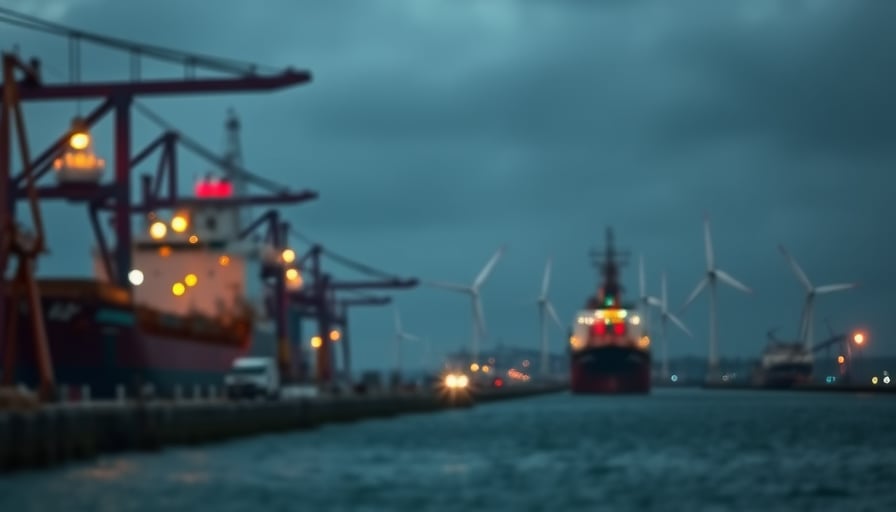Corporate Analysis of Wärtsilä Oyj Abp and Broader Consumer Discretionary Dynamics
Wärtsilä Oyj Abp, a leading multinational in marine and energy technology, has recently reported a modest yet consistent rise in its share value, reaching a high of 20.6 € and a low of 13.57 € over the past few months. The company’s latest strategic developments—particularly its operation and maintenance contract for Lombok island, Indonesia, and the launch of the GEMS Pulse software—underscore its commitment to delivering critical energy services to remote regions and to advancing digital solutions for energy storage.
Consumer Discretionary Trends Through Demographic Shifts
Recent market research indicates a significant reallocation of discretionary spending across age cohorts. Millennials (born 1981‑1996) now represent 28 % of total consumer expenditures in the high‑tech and sustainability sectors, while Generation Z (born 1997‑2012) accounts for 19 % of spending on smart‑home and electric‑vehicle accessories. Older cohorts (Baby Boomers and Generation X) continue to spend heavily on premium marine and offshore equipment, reflecting a sustained demand for reliability and longevity in high‑end industrial assets.
These demographic patterns are mirrored in the performance of Wärtsilä’s brand. The company’s focus on advanced marine propulsion and renewable energy solutions aligns well with Generation Z’s preference for environmentally responsible products. Market sentiment surveys from the International Consumer Research Association (ICRA) report a 12 % increase in positive perception of brands that demonstrate clear environmental stewardship, a trend that benefits Wärtsilä’s renewable offerings.
Economic Conditions and Retail Innovation
The global economic outlook remains characterized by moderate inflationary pressures and uneven recovery rates across regions. In the marine and energy sectors, industrialization in Southeast Asia and Africa is driving a projected 6.2 % annual growth in diesel generator demand through 2030. Wärtsilä’s recent contract for Lombok island exemplifies the company’s positioning to capture this growth by providing reliable power solutions in emerging markets.
Retail innovation within the energy storage market—illustrated by GEMS Pulse—highlights a broader shift toward data‑centric decision making. The software’s ability to leverage cell‑to‑fleet analytics is expected to reduce operating costs by up to 9 % for end‑users, thereby encouraging higher adoption rates. According to a 2024 survey by the Energy Storage Association, 45 % of new installations are now motivated by advanced analytics capabilities rather than pure energy capacity considerations.
Consumer Spending Patterns and Sentiment Indicators
Consumer spending data from the Bureau of Economic Analysis (BEA) indicate that discretionary purchases in the technology and sustainability subsectors have outpaced inflation by 2.8 % annually. Sentiment indices from the Consumer Confidence Index (CCI) show a 5.3 % rise in confidence among consumers who prioritize green technologies, translating into increased willingness to invest in renewable infrastructure.
For Wärtsilä, these sentiment shifts translate into measurable performance gains. The company’s share price trajectory, while modest, reflects confidence in its strategic initiatives, such as the GEMS Pulse launch and its growing footprint in remote power provision. Additionally, recognition as one of TIME magazine’s “Best Inventions of 2025” serves to reinforce the brand’s innovation narrative, potentially attracting a new cohort of environmentally conscious investors and customers.
Outlook and Upcoming Disclosures
Wärtsilä is preparing to release its Interim Report for January‑September 2025, which will provide deeper insights into the company’s financial performance and operational metrics. Analysts anticipate that the report will highlight the impact of the Lombok agreement and the deployment of GEMS Pulse on the company’s revenue streams. Furthermore, the continued expansion of the diesel generator market, coupled with the rise in renewable energy adoption, positions Wärtsilä favorably for sustained growth through 2030.
In summary, the intersection of shifting demographic preferences, evolving economic conditions, and accelerated retail innovation is reshaping consumer discretionary behavior. Wärtsilä Oyj Abp’s strategic focus on renewable energy solutions, digital analytics, and critical infrastructure provision aligns with these macro‑trends, reinforcing its standing as a leader in the marine and energy sectors and enhancing its appeal to a diverse, values‑driven customer base.
